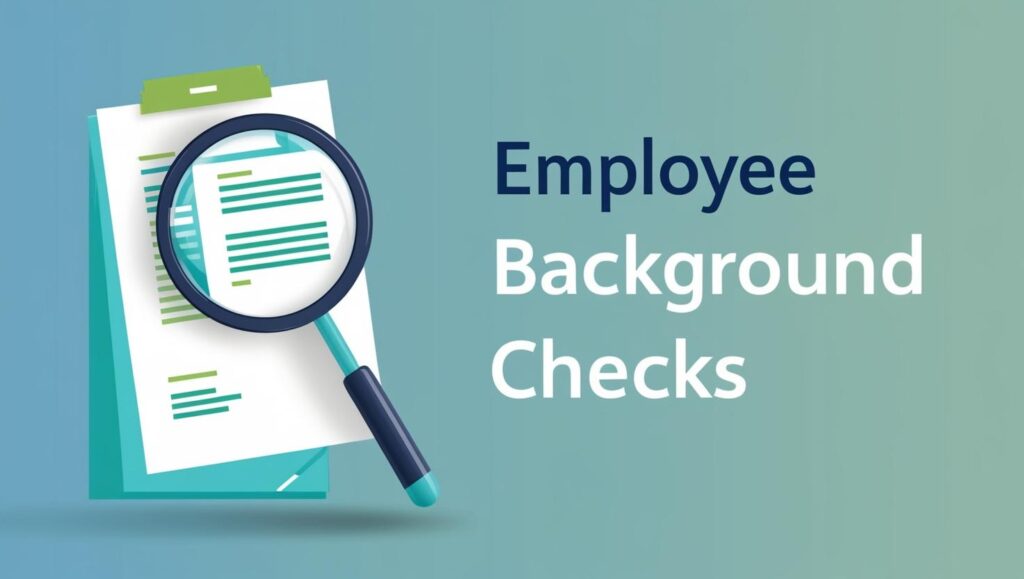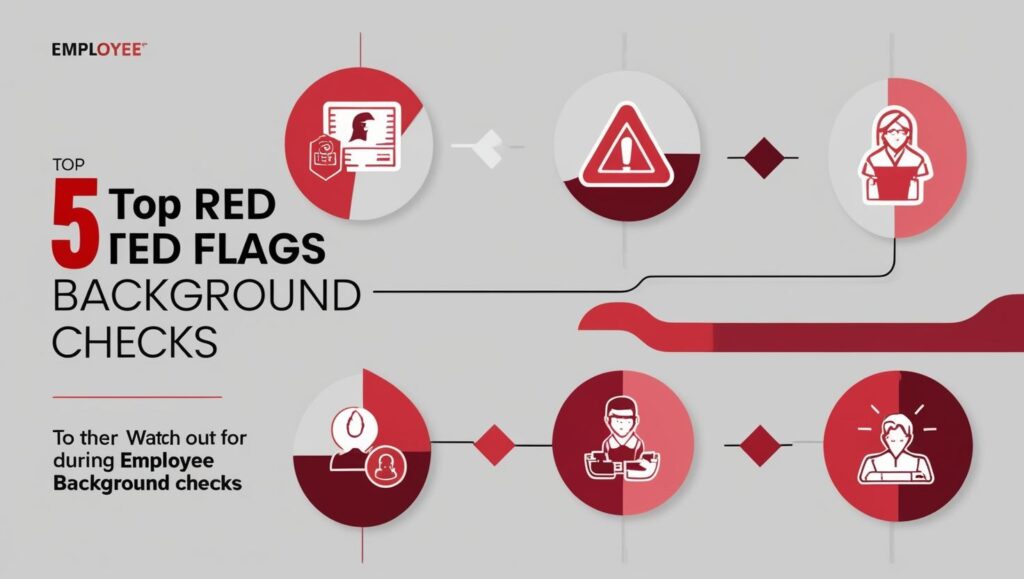Hiring the right candidate is critical for any organization. Employee background checks have become a vital part of the hiring process, enabling employers to verify a candidate’s credentials, experience, and character. However, not all background checks yield clean results. Certain red flags can indicate potential risks, and identifying them early can save companies from costly mistakes. Here are the top five red flags to watch out for during employee background checks and what they might mean for your organization.
1. Discrepancies in Employment History

The most common red flag of background checks is discrepancies in employment history, which can take many forms: job titles not matching dates of employment don’t match, or even the timeline of the employment doesn’t add up. Why It Matters:
They may symbolize deceit or cover-ups of scandalous backgrounds, for example, layoff due to poor performance or other sins.
An employment gap with no work at all may be viewed as a lifestyle disruption or unclear reasons like being in jail or having cases under disciplinary proceedings.
What To Do
Contact previous employers to verify work. Get an official record such as a paycheck stub or letter of employment if necessary.
In the interview, question candidates about gaps and inconsistencies, and give proper attention to their explanations.
2. False or Inflated Educational Qualifications
False or inflated educational qualifications is another very significant issue that arises in the background verification of candidates. Some candidates may claim about the degrees they have not received or institutions they never attended.
Why It Matters:
This is because the persons appointed to posts demanding certain certification or academic qualification are unqualified.
This type of dishonesty calls into question the integrity of the candidate as a whole.
What to Do
The verification services offered by third parties need to be contacted to check for degrees, certificates, and other claims regarding qualifications.
Direct contacts with institutions might be necessary for verifying credentials to determine authenticity.
3. Criminal Records Relevant to the Role
Not all criminal records will eliminate the candidates, but some offenses, especially those related to the applied position, will label the candidate as inappropriate. A fraud history is very relevant to finance-related roles, and violent offenses could be dangerous if the employee would be put in customer-facing positions.
Why It Is Important
Hiring people with inappropriate criminal backgrounds puts companies in legal liabilities and risks reputation damage.
It puts at risk other employees and stakeholders.
What to Do
Carry out extensive criminal background checks subject to local law and regulation.
Consider the seriousness and relevance of offense to job opportunity being offered and take into account the circumstances in which they were committed (age of offense, evidence of rehabilitation).
4. Bad References or No References
It is necessary to know the work ethic, behavior, and professional relationships of a candidate through reference. Bad references or no references at all give a red flag.
Why it Matters
The poor references indicate a poor performance or trouble in working with others, or unprofessional behavior.
Refusal to provide references could be an attempt to hide the worst aspects of his professional history.
What to Do
Always seek references from direct supervisors or other senior colleagues who have supervised or worked with the candidate.
Always ask pointed questions on their strengths, weaknesses, and reasons for leaving previous jobs.
5. Job Hopping
Jumping jobs too frequently and without clear justification may indicate the lack of stability or commitment. Even though there are a few sectors with high turnover, job-hopping is a red flag in itself.
Why It Matters
This could increase recruitment and training costs when a position experiences a high rate of turnover.
Job-hopping might suggest a person cannot be inducted into the organizational cultures or commit long-term.
What to Do
Understand the rationale behind job-hopping during the interviewing process. Even valid reasons like contract-based jobs or career advancement may not preclude making someone acceptable for hiring.
Check the references to confirm the reasons the candidate gave for leaving the previous employment.
How to Deal with Red Flags
These are red flags, but that should not in itself exclude a person from consideration without a better understanding of it. Keep the following points in mind:
Contextual Review: Every incident needs to be considered against the expectations of the job and of the company. Minor court case, few years ago is not an event that can be of a consideration point regarding responsibilities at hand in this particular role today.
Transparency on the candidate side: Explicit admissions and elucidations of warning flags are candid, self-expressed candidates.
Pattern recognition: one mistake is not the end, but the same flags keep coming and may point out a more important issue.
Conclusion
An employee background check is important for building a workforce that can be trusted and depended upon. Such checks will raise flags and allow such red flags to be addressed prior to them causing a threat, keeping your organization out of the way of danger. Some of the red flags which might call for more scrutiny in this regard are inconsistency in the employment history, fake identification, criminal record, bad references, and trends in job hopping, among others, thus giving the company ample time to decide as it makes strides towards ensuring that the place is effective and safe.
